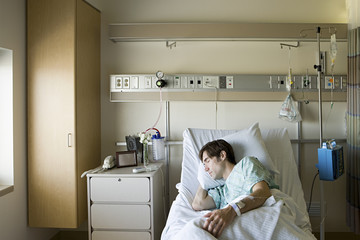When you hear the term PTSD, what do you think of? For most of us, Post Traumatic Stress Syndrome, or PTSD, is associated with Veterans returning from combat situations. However, scientists are only beginning to connect PTSD to a variety of traumatic situations that affect people of all ages, stages, and experiences.
For who have sustained a personal injury, whether through a vehicle accident or otherwise, signs of Post Traumatic Stress Syndrome can appear immediately or months after recovery. The National Alliance on Mental Illness reports that personal injury is one of the biggest contributors to trauma, and can affect millions of people throughout the country.
If you have been involved in a vehicle crash, accident at work, or in another traumatic accident, keep your eyes peeled for potential signs of PTSD.
Avoiding Places or People
A brain that has experienced trauma will do everything it can to avoid the trauma from happening again. For people who have PTSD due to a personal injury, this can result in avoiding certain places, people, or situations that remind them of the event. If you find yourself too anxious to go into the hallway where you were injured at work, or avoiding the street you were on when you were in that traffic accident, you could be showing signs of PTSD.
Anxiety and Anger
Post Traumatic Stress Syndrome can cause major emotional disturbances. Excess anxiety, depression, or even obsessive-compulsive behaviors could be signs of PTSD after injury. However, it isn’t just these mental health conditions that can affect survivors of trauma. People who have experienced trauma, such as an unexpected and serious injury, could also experience mood swings or bouts of intense anger or aggression. If you are having some noticeable emotional disturbances, it is wise to seek counsel from your doctor to assure you are receiving the support you deserve.
Sleep Disruptions
Getting a good night’s sleep can be nearly impossible for people who live with PTSD. Nightmares and insomnia can quickly creep in, exacerbating emotional health symptoms and even slowing physical recovery from injury. PTSD can also cause victims to sleep too much, giving them the chance to disassociate from the pain or injury. If your sleeping schedule has changed since your injury, talk to your doctor about it.
If you have been injured unexpectedly, you deserve compensation for your injuries and for any trauma you have sustained. Give the team at O’Brien Law a call today to set up your free consultation. We can advocate for you and assure you receive the support you deserve during your road to recovery.



